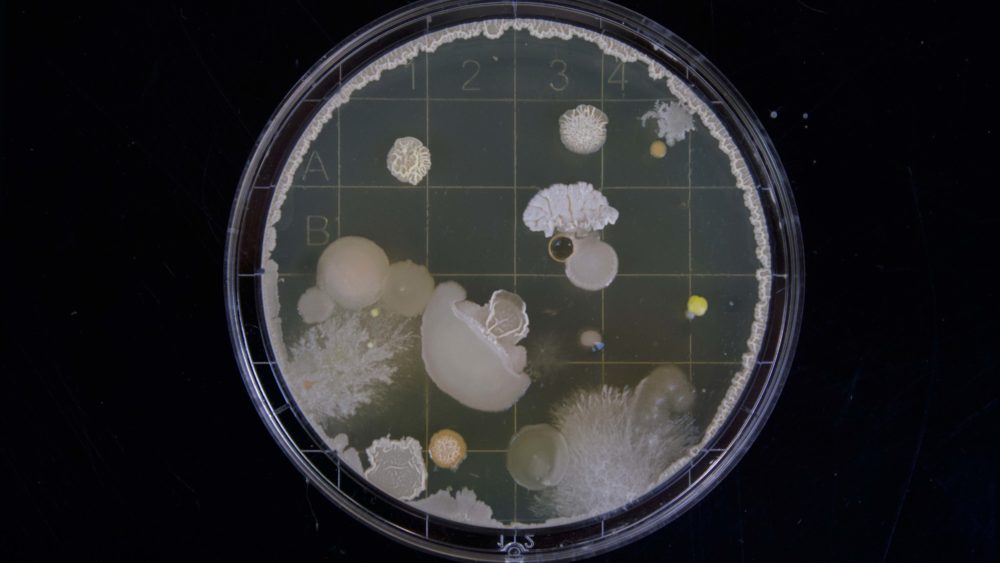“What sort of a god would create such an imaginably vast and life-giving universe? What sort of a god would dare to create human beings with such extraordinary powers of creation? Powers that can be used for good or ill.”
So asks A Reckless God, a new anthology of articles diving right into the troubled intersection between Christianity and science. Along with sections about climate change, genetics and creation, A Reckless God also features plenty of bite-sized reads about prominent Christian scientists and philosophers – as well as responses to new atheists such as Lawrence Krauss, Alain de Botton and Stephen Fry.
“’A Reckless God’ was a challenging title in the sense that we know that it’s provocative and could well lead people to misunderstand why we used it,” admits Chris Mulherin, co-editor of the new book published by ISCAST, an Australian network of Christians in science and technology.
Hoping readers sift through A Reckless God to explore topics or themes they’re interested in, Mulherin says one of the book’s contributors (Stephen Ames) describes the Christian God as a loving, yet reckless creator god. A god who is just like the father in the famous parable of the prodigal son, as told by Jesus. “The father is reckless in his love for his son; he breaks all the cultural rules in order to show his amazing grace and love for his son, who has offended the family,” says Mulherin.
That’s the vision of God upheld by the first book in ISCAST’s Nexus series. While its not yet available digitally, the “very readable” book was consciously designed for a modern audience seeking “shorter and shorter snippets” of information and thought. By providing a wealth of brief yet meaty articles between two covers, A Reckless God seeks to promote the ongoing conversation between science and Christianity.
Executive director of ISCAST, as well as being an Anglican minister and contributor to A Reckless God, Mulherin knows better than most that the spectre of science continues to instantly stir angst in some Christians. “Science is coming up with new theories, which scientists are pretty confident about, and some of those theories are challenging to Christian thinking.”
“The answer is not to bury our head in the sand. It’s to do the hard work of thinking about them.” – Chris Mulherin
Without sounding tired or irritated by being asked again about the troubled relationship between faith and science, he offers a contemporary example from our science-technology era. “Before we knew anything about genetics, we could think certain ways about Adam and Eve. But genetics during the past 13 years has raised very big questions that theologians are now having to wrestle with, about how we understand the human race and [its being] made in the image of God.”
“These are important questions for Christians but the answer is not to bury our head in the sand. It’s to do the hard work of thinking about them.”
With articles by prominent Christian scientists and thinkers such as Oxford mathematician John Lennox, Graeme Clark (inventor of the cochlear implant) and theologian Jurgen Moltmann, A Reckless God is keen to present Christian faith intersecting with the best of mainstream science.
“I think it’s a book that will open [people’s] eyes and help them to realise there are very significant Christian scientists, philosophers and theologians around the place who are thinking about these things – and you don’t have to leave your brain at the door, if you are going to be a Christian,” says Mulherin.
“Many of these chapters are written by world-leading scientists or philosophers, and you just can’t deny that these people are very well respected in secular circles … yet are committed to orthodox Christian belief.”
“There is no fundamental contradiction. They are harmonious.” – Chris Mulherin
“[ISCAST] has a message I think needs to be heard within the Christian church and the secular public space. So many people simply haven’t thought seriously about the relationship between science and faith. That means, in the Christian space, many people are actually a bit fearful … [as if] I put these two things together – if I take science seriously – then I can’t be a Christian.”
“In the secular space, you hear so often people say, ‘I believe in science, therefore I can’t be a Christian or religious.’ That’s just nonsense.”
“There is no fundamental contradiction. They are harmonious,” concludes Mulherin. But it is challenging to put them together, something A Reckless God wants to assist you with.



